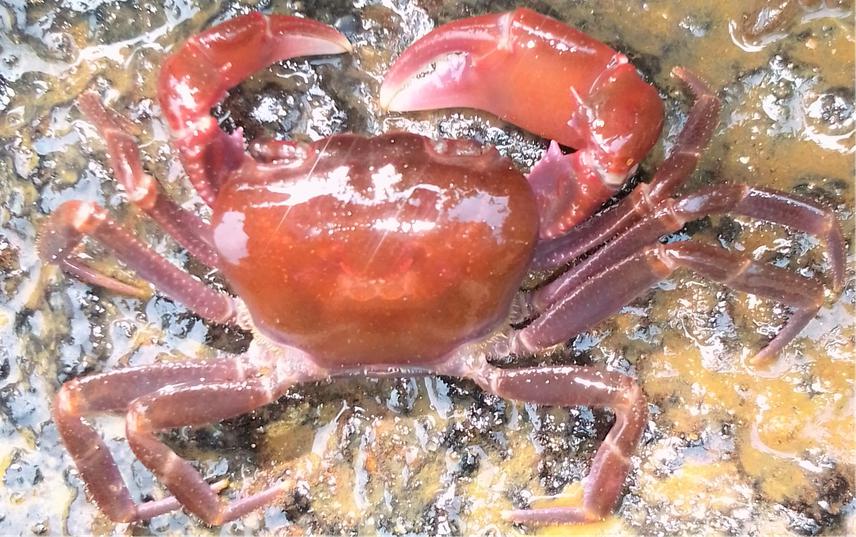Franclin Kuate Simo
Other projects
30 Sep 2022
Conservation Measures and Extinction Risk Assessment for Buea nlonako Mvogo Ndongo, von Rintelen & Cumberlidge, 2020, a Threatened Species of Freshwater Crab Endemic to Mt. Nlonako, Cameroon
During the 1st Rufford Small Grant, we have discovered two populations of an undescribed species of Louisea from northern Mt. Nlonako Reserve and the Ekom Nkam waterfall in Southwest Cameroon. This species was recognised by Dr. Pierre A. Mvogo Ndongo (Cameroon) and Prof. Neil Cumberlidge (USA) as new to science based on morphological and molecular data. A manuscript describing it is currently in progess and will be submitted in the near future. The habitat where this new species occurs is threatened by farming activities whose run-off is a source of agro-chemicals that are being released into the rivers draining Mt. Nlonako. These organic chemicals affect egg development, hatchling crabs, and adults of the new species. Furthermore, the other site where this species occurs (Ekom Nkam waterfall) is threatened by tourists whose unregulated activities have led to the trampling of crabs (as well as also killing endangered species of amphibians (Conraua goliath, Hyperolius dintelmanni), reptiles (Arthroleptis nlonakoensis), and plants (Begonia pelargoniiflora) found there).

A male specimen of the new species of Louisea recently discovered.
Earlier conservation interventions (my 1st RSG and the 2nd Booster Grant for Dr. Pierre A. Mvogo Ndongo) have reduced the intensity of the anthropogenic threats to species on Mt. Nlonako and the surrounding areas, but their long-term conservation still requires a Species Action Plan based on a detailed knowledge of population structure and trends, and on all aspects of their reproduction. A combination of field surveys and laboratory analyses will be used to gather data on sex ratios, size, distribution, abundance, breeding season, recruitment rates, and fecundity needed to develop a conservation strategy for the new species. Conservation interventions of this nature depend a lot on community involvement and cooperation, so the proposed plan includes a strong educational component aimed at building awareness of the advantages to the local community of being involved in the management and long-term care of their aquatic and forest resources.
The project is administrated by Cameroon Association for Research on Crustaceans and Other Aquatic Ressources (https://crustaces-obala.org) and under the supervision by Dr. Pierre A. Mvogo Ndongo who has long experience working on conservation of freshwater crabs from Central and West Africa.